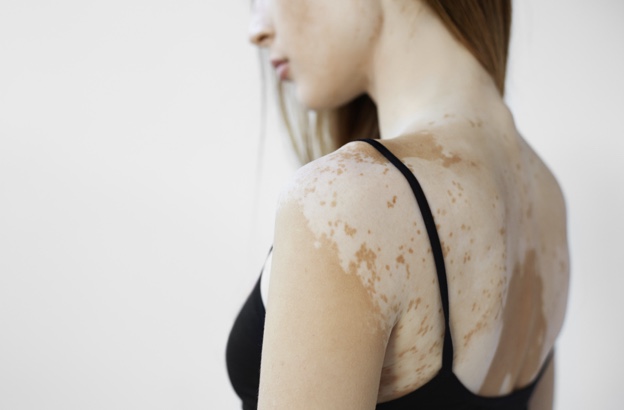There is plenty of good advice for how to get glowing, gorgeous skin: drink enough water, clean your skin gently and regularly, avoid greasy and processed foods, apply appropriate moisturizers, etc. However, sometimes, it doesn’t matter how clean your diet is or how rigorous your skincare regimen is; sometimes, your skin remains resolutely bad.
Fortunately, there could still be hope. As the largest organ in the body, skin can develop various conditions that affect how it looks and feels. If you suffer from one or more of these conditions, you might need a prescription medication to get the glowing skin of your dreams.
No one but a trained healthcare provider can tell you for certain whether you suffer from a skin condition, but it might be worth perusing this list of common skin ailments just in case you are undiagnosed and need medical assistance.
Chapter Overview
Acne
Everyone gets a pimple every now and again, but some people suffer from serious cases of acne that require more to fix than an over-the-counter cleanser and a couple days of waiting. Scars, painful nodules or deep cysts are symptoms of more severe acne that might require antibiotics or retinoids to cure. Additionally, if acne doesn’t dissipate with over-the-counter products in more than three months, you might want to get prescriptions online to help reduce inflammation, redness and pain.
Eczema
Eczema is the name of a group of skin conditions that cause the skin to get itchy, inflamed and sometimes blistered and weeping. Though in itself eczema is not necessarily harmful, consistent scratching and an inability to keep the skin clean could result in scars or infections. In many cases, the reason eczema develops isn’t well understood, so treatments for the condition target the symptoms as opposed to the underlying cause. If you have eczema, you likely need a topical steroid to keep your skin in better condition.
Psoriasis
If you have scaly patches of silvery or red skin that feels intensely itchy and sometimes painful, you could have psoriasis. Considered an autoimmune disease, this condition is caused by the immune system mistakenly attacking healthy skin cells. There are different types of psoriasis; some can be managed through over-the-counter moisturizers, but some, like guttate and flexural psoriasis, require prescription topicals and even oral medication to keep in check.
Actinic Keratosis
The older you get, the more skin conditions you are likely to develop. Age spots, or rough patches of skin on the face, arms and hands, develop as a result of sun damage through the years. The spots, called actinic keratoses, are common, but they can be uncomfortable or unsightly. Some doctors don’t mind removing keratoses by cutting, cauterizing or freezing them, but you might prefer a gentler approach with a topical medication that inflames the area to remove the lesion.
Rosacea
Not every red face is caused by rosacea, but this skin condition is relatively common, especially in women over 30. Redness, swelling, dilated blood vessels, pimples and perhaps even an enlarged nose are all symptoms of this chronic and cyclical condition. There are several potential causes for rosacea, such as genetics and bacteria, and the only effective treatments are prescriptions like antibiotics, beta blockers and vasoconstrictors.
Vitiligo

One of the more fascinating skin conditions, vitiligo is marked by a loss of skin pigment due to the immune system attacking the cells that create color. Those diagnosed with vitiligo can develop striking skin patterns; many so-called vitiligans are more than proud of how their new skin looks, but some strive to control their autoimmune disorder and slow or stop their loss of pigment. Prescription corticosteroids can help return pigment to some fading patches and slow the growth of patches over time.
Keratosis Pilaris
Sometimes called “chicken skin,” keratosis pilaris is a condition that causes rough bumps to appear in patches all over the skin. This condition is caused by dead skin clogging pores and preventing the release of sweat and oil. Though keratosis pilaris typically disappears by age 30, those who are suffering serious bouts of chicken skin can seek medical treatment. Prescriptions for creams that remove dead skin cells and prevent the blockage of follicles are particularly effective.
You want your skin to look and feel its best, and that might mean seeking a prescription medication to help you manage a nagging condition. Fortunately, there are plenty of solutions for even the mildest skin conditions, so you don’t have to suffer with bad skin for long.

